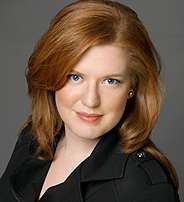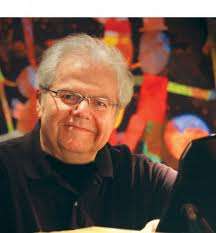|
Back
A Vigorous Plea to God New York
Avery Fisher Hall, Lincoln Center
06/20/2012 - & June 21, 23, 2012
Wolfgang Amadeus Mozart: Piano Concerto in E-flat, K. 482 – Mass in C Minor (“Great”), K. 427
Jennifer Zetlan (Soprano), Jennifer Johnson Cano (Mezzo Soprano), Paul Appleby (Tenor), Joshua Hopkins (Baritone), Emanuel Ax (Pianist)
New York Choral Artists, Joseph Flummerfelt (Conductor), New York Philharmonic Orchestra, Alan Gilbert (Music Director)

J.J. Cano (© Andrew Chiciak)
Theoretically, the 2011-2012 Subscription Series finale shouldn’t finish with a Mass. For such a terrific season, one presumes Alan Gilbert, would choose something less, er...sacred, not so...um, sanctimonious, more, well...secularly rousing.
On the other hand, the Phil is actually not finishing at all. Two of the more exciting programs will emerge next week, one devoted entirely to the French composer Henri Dutilleux, the other a concert so big that only the New York Armory will fit in the Phil, three conductors and Stockhausen’s Gruppen.
So a “finale” Mass is only an entr’acte for unusual things to come.
And after all, Avery Fisher Hall is absolutely the right place for the “Great” C Minor Mass. (Not to belittle the work, the word Gross, “Great”, refers not to quantity of performers, not the quality.) Like a wedding dowry, Mozart wrote it to show off his bride to his parents. So this was to be joyous piece with the kind of orchestra no church would accept, and with solo pieces that could fit right into a secular cantata. Even if he didn’t finish it, the piece has some wonderful anthems, and solo work that would fit into any 18th Century opera house.
The New York Choral Artists, not a huge chorus by any means (less than 70), gave it the big boomng sound needed in the muscular choruses, making the eight-part Qui tollis resemble a Handelian anthem. TheGloria was given a glorious opening and ended, alas on a rather soft plea for peace.
(Not that I believe God has a hearing problem, but one would imagine that He or She might respond to a little urgency? A little nudge in the right direction for an end to war?? Maybe??)
But, in honor of his wife, this Mozart Mass is a work where sopranos lead the bill. The Laudamus and exceedingly difficult Incarnatus est take Metropolitan Opera virtuosity. Jennifer Zoltan was splendid, and Jennifer Johnson Cano, usually a mezzo, handled things easily. Neither of them played this like a church Mass, which was exactly right.
The men played vocal second fiddle here, and I felt especially sorry for Joshua Hopkins. Last week, he was wordless in the Nielsen Third Symphony. Here, he had to wait until the finale. Some day, the Phil should give him a leading man role.

E. Ax (© Courtesy of the artist)
No questions could be asked about the aptness for the finale than Emanuel Ax? Not because he performs so frequently in New York, not because he and Alan Gilbert have an umbilical affinity, whether with Beethoven or Magnus Lindberg. But because one knows that Emanuel Ax has an understanding, an honesty and–beneath those seemingly effortless fingers– he has the ultimate grasp of his music.
On a the soloist’s level, he made the Mozart 22nd Concerto look simple. The fingers rippled along, the lovely lyrical Andante was played like an Arcadian elegy with flute and bassoon. And the cadenzas–written by Mr. Ax himself–caught the Mozart mood.
But this was no pretty-pretty Mozart. Mr. Gilbert was all too aware that by substituting clarinet for oboe, by giving us trumpets and drums, Mozart wanted to arouse those blasé Viennese audiences, make them sit up and fear, musically, that the Turkish Army was about to invade.
Thus, from the beginning, this was tough visceral music, with an upbeat first movement on the verge of fanfares, and a finale that balanced out vitality with elegance. Mr. Ax felt the pulse–aristocratic, martial, triumphant–from the start, found a bit of humor (that little whisper at the end), but performed this Concerto as if, like Mozart himself, his playing had the energy of sheer improvisation.
Harry Rolnick
|